CHANG, TAO-PEN
Department of Commercial Design
I have always believed that “design is not only for the top 1% of clients and business owners,” but for the general public, including those who are underprivileged, disadvantaged, impoverished, or in need of assistance. Additionally, I have been inspired by the passion for social service demonstrated by the faculty at Chung Yuan Christian University. This has motivated me to integrate social design topics into my teaching. For example, in the foundational design course, we address local revitalization and advocacy for ethical issues; in graduate-level courses, we engage in design services for care institutions; and in courses like advertising design and integrated marketing and design, we work with nonprofit organizations, social enterprises, or social issue-based projects. Students step out of the classroom to participate in real-world societal challenges, using their design expertise to help solve problems. Through experiential learning, service sites become their studios, offering a macro perspective on the complexities of society. This approach combines theory with practice to address real needs, fostering social awareness, personal growth, and professional learning.
To meet the demand for problem-solving and provide commercial design students with opportunities to develop interdisciplinary collaboration and communication skills, I initiated a partnership with Professor Ding Peiyuan from the Department of Business Administration 20 years ago. Together, we formed the “CYCU Advertising and Marketing Service Team” to realize the ideal of interdisciplinary service-learning. I am deeply grateful for the colleagues who have collaborated with us along the way, including Professor Qiu Yongzhong from the Department of Commercial Design and four other faculty members from the Department of Business Administration. Their cooperation and support have been invaluable. I also appreciate the more than 80 social issues that have been provided as projects, offering students hands-on opportunities. Through field visits, experience sharing, investigative analysis, planning and strategy development, communication discussions, design execution, proposal presentations, and testing, students learn to overcome challenges in interdisciplinary collaboration and communication to achieve the goals of problem-solving and social service.
I am especially thankful for Chung Yuan Christian University’s diverse support systems, the professional assistance of the Service-Learning Center, the backing of innovation programs, various initiatives (such as the USR program), and the wealth of experience contributed by service-learning faculty members. All of these have made the process of social service smoother and more impactful.
HUANG, CHING-HUI
Department of Interior Design
Service-learning courses serve as an excellent platform for “learning by doing.”
These courses take students into real-world settings, where they must not only thoroughly understand the design needs of their service recipients but also apply their imagination and professional knowledge to solve design problems. Together, they propose creative and feasible solutions that are both innovative and practical. The course emphasizes hands-on implementation, requiring students to work as a team to complete the entire process from planning and design to execution, rather than merely staying in the realm of abstract ideas.
The demands of service-learning courses inspire students’ passion for design, encouraging them to carefully consider their concepts and learn professional practices. The sense of achievement gained from successfully completing projects is immense. With funding support, instructors can invite skilled professionals to mentor students in design practices and purchase materials necessary to bring their design ideas to life. The outcomes of these courses give teachers greater confidence to continue exploring new design possibilities with their students. The essence of “teaching and learning mutually” is fully embodied in service-learning courses.
LIN, HUI-JU
Department of Applied Linguistics and Language Studies
“Bilingual Education” as a Profession
Receiving an award for bilingual teaching is not only a recognition of my past efforts but also a motivation for my future endeavors. Building upon my professional training and teaching experience, I continue to teach undergraduate and graduate courses entirely in English. Through innovative teaching methods and diverse resources, I aim to enhance students’ professional knowledge and skills.
I am grateful for Chung Yuan Christian University’s holistic education philosophy and the support from the Service-Learning Center, which have enabled me to lead students beyond the classroom. This approach not only allows for a more effective evaluation of students’ learning outcomes in bilingual theory and practice but also helps students improve their teaching skills and adopt the right mindset to overcome challenges in teaching environments. I am especially thankful for the efforts of my students and the support of my colleagues, which have contributed to the successful implementation of bilingual education.
Looking ahead, I will continue to utilize service-learning to help undergraduate and graduate students grow in their professional competencies while also assisting students from underprivileged families to improve their English skills and learning motivation. My goal is to use professional expertise to serve others and fulfill social responsibilities.

